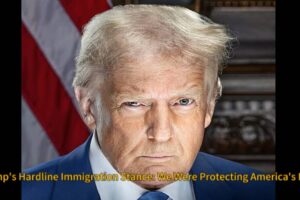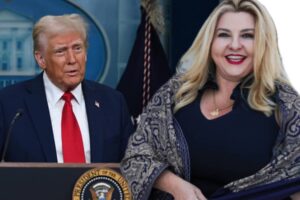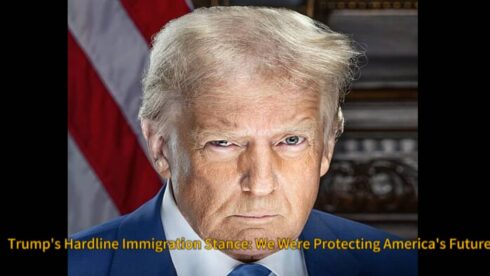Ontario Premier Doug Ford has announced a sweeping ban on American companies from securing provincial government contracts until the United States lifts tariffs imposed on Canadian goods. The decision is a direct response to President Donald Trump’s new 25% import tax on Canadian products, which has ignited fresh trade tensions between the two countries.
Ford, who is seeking re-election in a snap vote he called last week, framed the move as a necessary countermeasure to protect Ontario’s economy. “Ontario won’t do business with people hell-bent on destroying our economy,” he declared. His administration is actively reviewing all contracts with U.S.-based firms to ensure compliance with this policy, signaling a broader economic standoff with Washington.
Ontario Cancels $100 Million Starlink Contract
Among the first casualties of Ford’s directive is a high-profile C$100 million ($68 million) contract with Starlink, the satellite internet provider owned by Elon Musk’s SpaceX. Ontario had initially partnered with Starlink last November to expand high-speed internet access to 15,000 underserved homes and businesses in the province.
Ford defended the abrupt cancellation, arguing that it was a matter of principle. “Canada didn’t start this fight with the U.S., but you better believe we’re ready to win it,” he said at a news conference. Musk, a close ally of Trump, appeared unfazed by the announcement, responding on his social media platform X with a simple “Oh well.” However, the termination could trigger legal action, with Ford acknowledging that Ontario may have to pay a penalty but asserting that the province has “a very good case” if challenged in court.
Trump and Trudeau Clash Over Trade Policies
The tariffs, which take effect on Tuesday, have fueled diplomatic tensions between Trump and Canadian Prime Minister Justin Trudeau. The two leaders spoke on Monday, with Trump describing their conversation as a “good talk” but reiterating his concerns about Canadian trade policies. “I’m sure you’re shocked to hear that, but Canada is very tough,” he said, accusing the country of taking advantage of the U.S. in trade negotiations.
In response, Trudeau has unveiled an aggressive counter-tariff strategy, pledging to impose C$30 billion in tariffs on American goods immediately, with an additional C$125 billion in 21 days, bringing the total to C$155 billion ($107 billion). “Canada has no choice but to hit back, and hit back hard,” Ford echoed, reinforcing the country’s commitment to retaliate against U.S. trade measures.
Economic and Political Implications of the Trade War
The unfolding trade dispute threatens to disrupt key economic sectors, with industries on both sides of the border bracing for financial repercussions. Ontario’s decision to sever ties with American firms, particularly Starlink, signals a broader shift in provincial procurement policies that could have long-term consequences for cross-border business relations.
Politically, Ford’s tough stance may bolster his re-election bid by appealing to Ontario voters who view the tariffs as an attack on Canadian economic sovereignty. However, the move also risks alienating investors and tech companies that rely on cross-border partnerships. As Canada and the U.S. prepare for further negotiations, the outcome of this escalating trade war remains uncertain, with both sides unwilling to back down.
Other Provinces Ban U.S. Liquor, Reassess Contracts
In response to new tariffs imposed by former U.S. President Donald Trump, other Canadian provinces are taking retaliatory steps, with officials in Quebec, British Columbia, and New Brunswick announcing plans to remove American-made alcoholic beverages from their liquor store shelves. Additionally, these provinces are reassessing existing contracts with U.S. firms, signaling a broader economic pushback against Washington’s trade policies.
This move underscores growing tensions between Canada and the United States as trade relations deteriorate under the renewed tariff measures. By targeting U.S. liquor imports, Canadian officials aim to exert economic pressure on American businesses, potentially prompting political responses from affected industries. The policy shift is expected to impact sales for American liquor producers, particularly in whiskey and bourbon exports, which have historically enjoyed strong demand in Canadian markets.
Canada Faces Uncertain Future Amid U.S. Tariffs
The escalating trade dispute comes as Mexico secured a temporary reprieve from tariffs after President Claudia Sheinbaum agreed to deploy additional Mexican National Guard troops to curb illegal migration at the U.S.-Mexico border. However, a Canadian official, speaking to The New York Times, expressed skepticism that Ottawa would receive a similar concession from the Trump administration.
Amid these developments, Canada has already committed C$1.3 billion ($900 million) to bolstering border security, yet tensions persist. In a bid to prevent further economic fallout, Canadian premiers are set to travel to Washington, D.C., for high-level negotiations and to attend a meeting with U.S. state governors. Meanwhile, the economic repercussions of Trump’s tariff escalation were immediately felt as all three major U.S. stock exchanges tumbled when markets opened on Monday, highlighting investor uncertainty over the trade conflict’s long-term impact.














